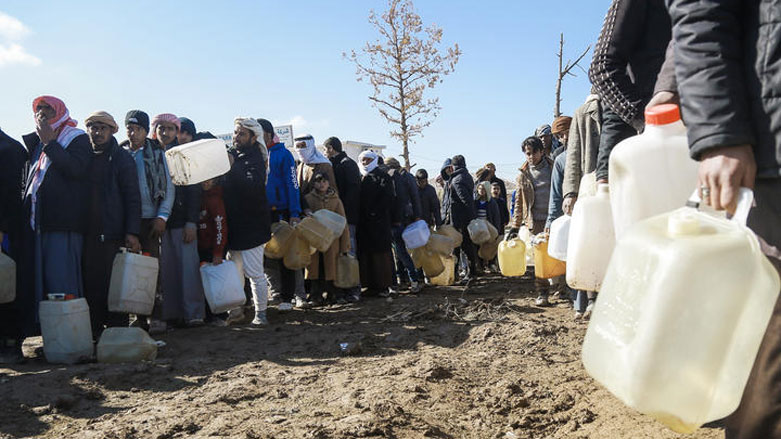QAMISHLI, Syria (Kurdistan 24) – Dozens of human rights organizations have warned that the recent decision by Turkish-backed armed groups to repeatedly cut off the water supply to Kurdish-held areas of northern Syria puts hundreds of thousands of civilians, whose available health services are already severely degraded by almost a decade of civil war, at extreme risk for mass outbreaks of the coronavirus.
“Turkish authorities’ failure to ensure adequate water supplies to Kurdish-held areas in Northeast Syria is compromising humanitarian agencies’ ability to prepare and protect vulnerable communities in the COVID-19 pandemic,” said Human Rights Watch (HRW) in a report released on Tuesday.
The human rights watchdog said Turkish officials should “immediately do everything they can to resume supplying water through the Allouk water pumping station.”
The water station, located in the eastern countryside of the city of Ras al-Ain (Serekaniye), is the major source of water used by residents in multiple surrounding areas, including Hasakah, Tal Tamir, and both the al-Hol and al-Arishah displacement camps.
Turkish-backed groups have repeatedly cut off the supply since the start of the year, expelling workers from the station as leverage to demand that Kurdish-led local authorities in northeast Syria provide increased electricity to areas under their control before allowing the water to flow again. The latest interruption was on Sunday.
On March 23, UNICEF Representative in Syria Fran Equiza said the interruption “during the current efforts to curb the spread of the coronavirus disease puts children and families at unacceptable risk.”
“Handwashing with soap is critical in the fight against COVID-19,” he stressed.
Equiza also underlined that the station is the main source of water for around 460,000 people in and around Hasakah city and Tal Tamer, including in the densely packed camps for displaced families.
On Friday, 49 Syrian civil society and human rights organizations said in a statement that the repeated interruption of potable water service is coercing the residents to rely on unsafe water resources, which in turn puts their lives on the line despite local efforts to combat the novel coronavirus.
“Denying hundreds of thousands of people access to water is denying them a basic source of protection against COVID-19, given that handwashing is a fundamental means in shielding oneself of the virus,” the joint statement reads.
HRW warned of potentially catastrophic consequences in Turkey as well, arguing, “Not only is the Turkish authorities’ water shut-off to communities in Northeast Syria harmful to civilians, but it could also blowback on Turkey itself.”
“Rights-respecting public health measures are needed to address the coronavirus; borders alone won’t stop a pandemic’s spread.”

